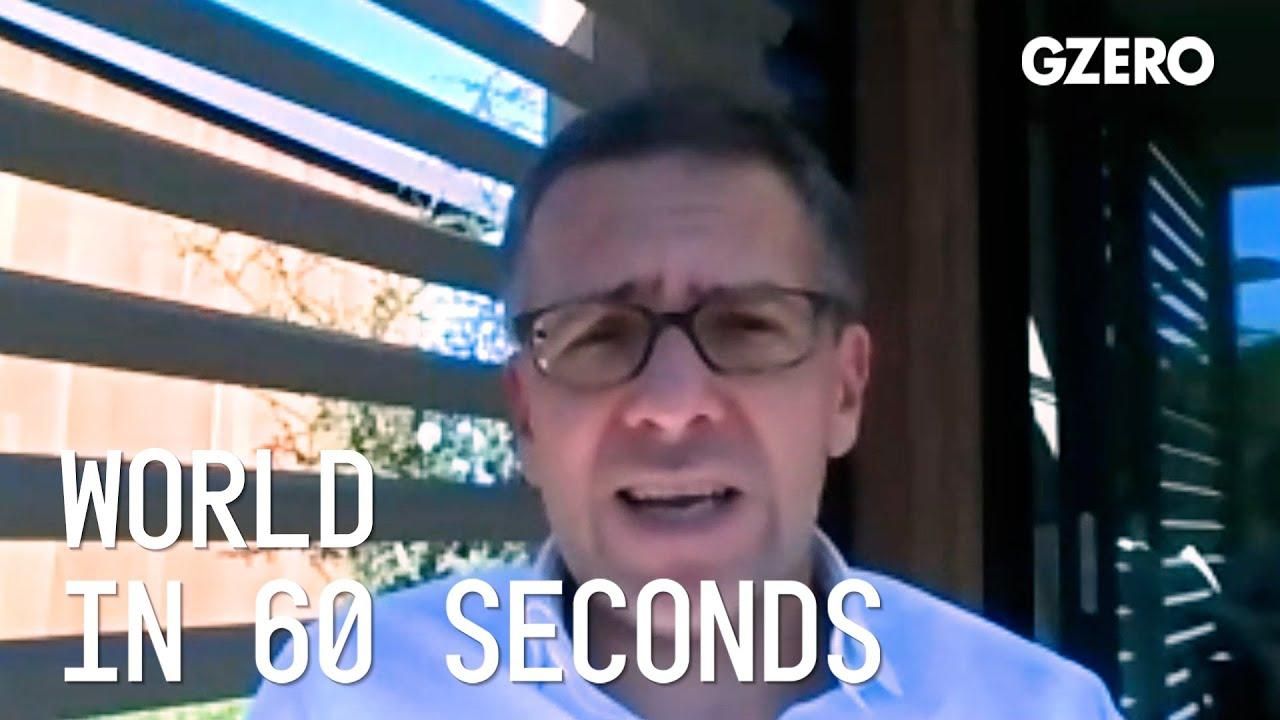Ian Bremmer shares his insights on global politics this week on World In 60 Seconds.
Will China become more assertive with Xi securing his third term?
I don't think so. I think it's going to be pretty much exactly the same. Okay everyone's going to be watching whether you get technocrats in key economic positions or not. If you do, they're going to say, "Oh, it's going to be more balanced." If you don't, they're going to say, "Xi's going to crack down." In reality, he's in charge and he's been in charge and he is going to be in charge. And that really means driving a more domestically focused economy with more local supply chain, more focused on local consumption, and more state capitalism probably means a little bit less productivity and efficiency as well. Plus zero-COVID keeps going, so I don't think it changes that much.
Should Ukrainians worry about the loss of US support after the next month's midterm elections?
Finally people asking about this as opposed to, "Is Europe going to break down?" I think Europe is going to stay stronger because they consider it their war. They're the ones that took millions of Ukrainians into their homes. They're the ones that are facing the major economic challenges themselves. They're the ones that are in many cases, deeply worried about what happens next after Ukraine. And you're going to see asymmetric warfare. The Norwegians are feeling it now with arresting a couple of Russians. The Polish government, the Baltic states, and they're all bringing Ukraine in. The United States, very different. And you've seen this with Elon Musk's recent commentary, you've seen it with Trump's commentary, now you've seen Kevin McCarthy saying "You're not going to get the same amount of money from Congress if the Republicans come and take the House."
This is not going to be a near term issue the next 6, even 12 months. I still think you're going to get a massive amount of support from the US, some of which will have been approved from 2022. But looking out, Zelensky will clearly know that the Americans are not going to be as strong behind him. They're going to be more divided than they have been over the last eight months.
With the ongoing Civil War, is Ethiopia's humanitarian crisis going to deteriorate?
Certainly in the near term it looks that way right now. The willingness of the Ethiopian government to try to improve their military situation on the ground in Tigray while they are supposedly talking about humanitarian negotiations, that means that there's going to be a lot more fighting, frankly. This is what always happens in these conflicts, is when the situation is unstable and one side believes that they have something to play for before they can get negotiations going. It's a harder time to get it moving. And that's where we are right now in Ethiopia. Hard to see in one of the poorest countries, poorest regions, the Horn of Africa in Sub-Saharan Africa right now.
- What makes Xi Jinping tick? - GZERO Media ›
- What We're Watching: Ukraine's gains, Democrats' midterm odds ... ›
- Is Ethiopia's Tigray region really on the road to peace? - GZERO ... ›
- What We're Watching: Macron's challenges, Xi's power play, Iran's ... ›
- Xi Jinping tightens his grip on China - GZERO Media ›
- How China is overtaking the US as top world power (according to an investor) - GZERO Media ›
More For You
In this Quick Take, Ian Bremmer addresses the killing of Alex Pretti at a protest in Minneapolis, calling it “a tipping point” in America’s increasingly volatile politics.
Most Popular
Who decides the boundaries for artificial intelligence, and how do governments ensure public trust? Speaking at the 2026 World Economic Forum in Davos, Arancha González Laya, Dean of the Paris School of International Affairs and former Foreign Minister of Spain, emphasized the importance of clear regulations to maintain trust in technology.
Will AI change the balance of power in the world? At the 2026 World Economic Forum in Davos, Ian Bremmer addresses how artificial intelligence could redefine global politics, human behavior, and societal stability.
Ian Bremmer sits down with Finland’s President Alexander Stubb and the IMF’s Kristalina Georgieva on the sidelines of the World Economic Forum to discuss President Trump’s Greenland threats, the state of the global economy, and the future of the transatlantic relationship.
